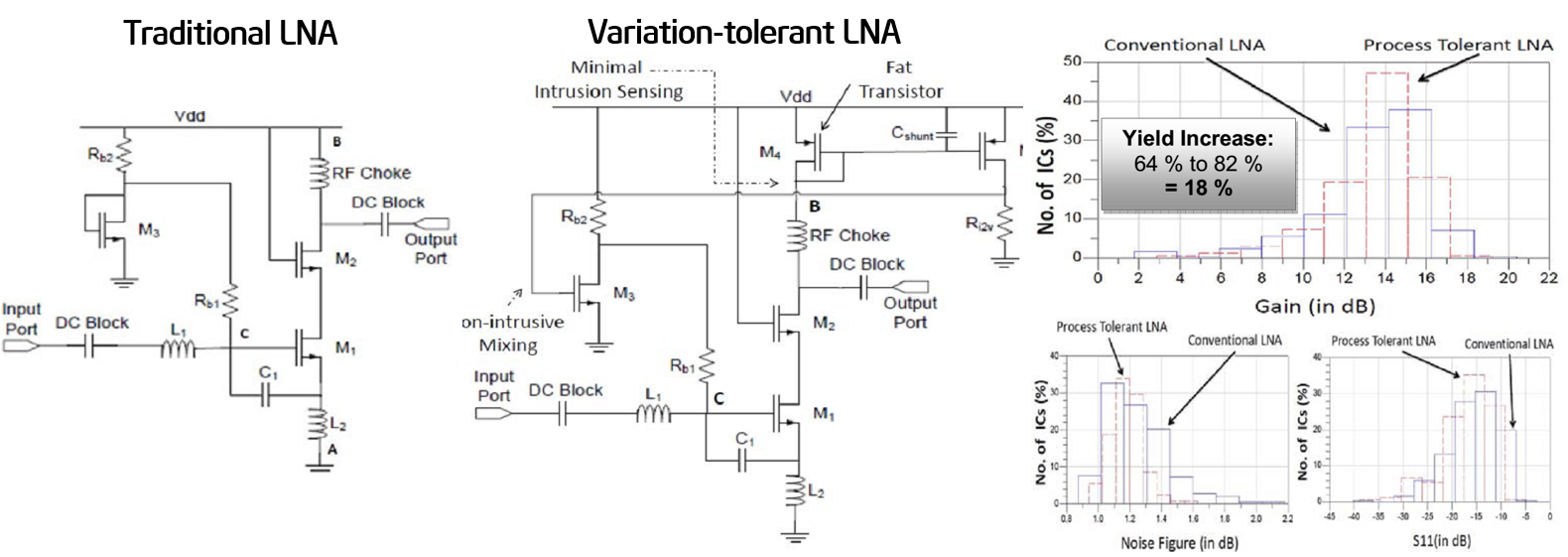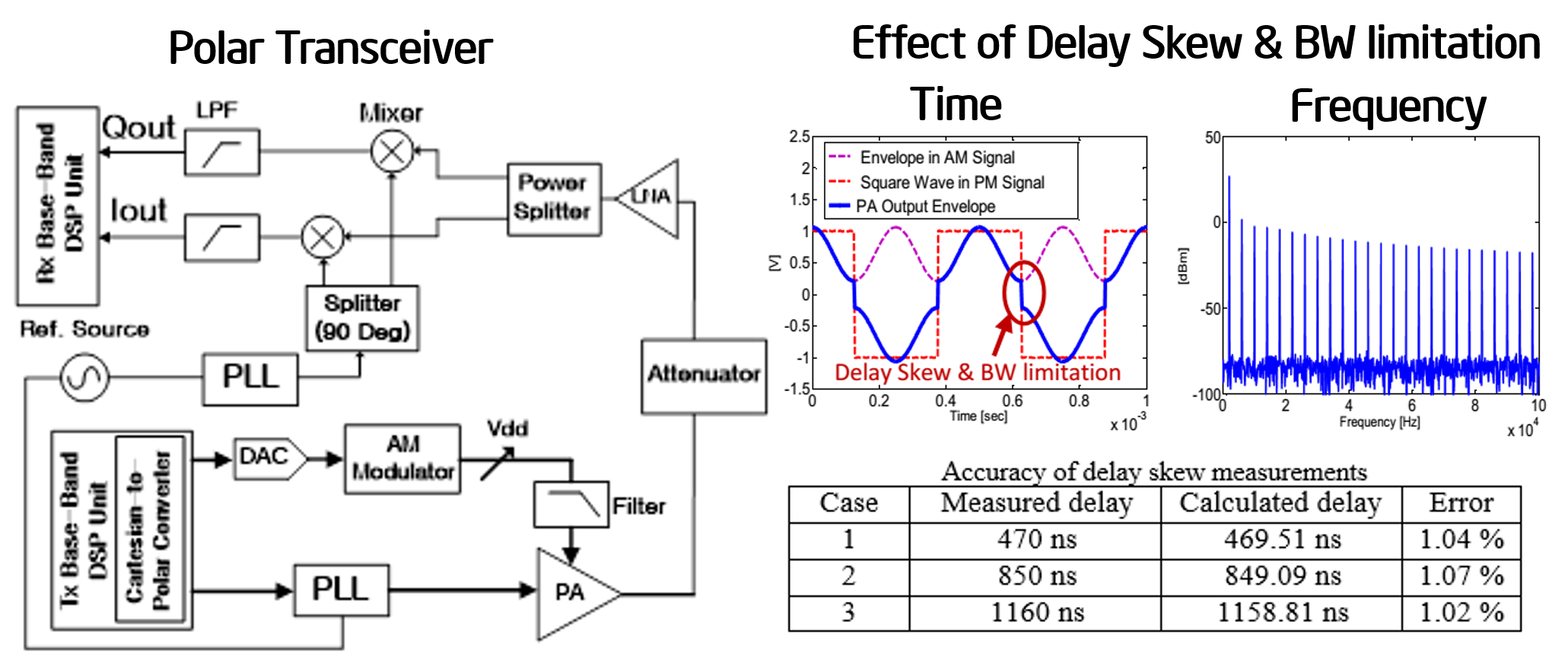RF Test, Adaptation and Self-Healing
System Level Self-Healing of RF Transceivers
CMOS technology scaling has exacerbated the effects of process variations on circuit level performance and has driven the need
for post-manufacture tuning of high-performance RF systems. In this work, a new iterative built-in testing and tuning approach for RF transceiver
systems is proposed that uses: (a) the baseband processor to stimulate the RF front end in loopback mode using DSP-generated multitones, (b) the output
of the receiver and sensors designed into the RF signal path to acquire the response of the front-end to the applied stimulus, (c) assessment of all the
relevant transceiver specifications in a single data acquisition from the observed front-end response and (d) iterative testing and tuning of the RF front
end using DSP-activated tuning control until all the RF front end performance specifications are within acceptable bounds with minimal impact on overall
power consumption. The proposed methodology enables yield recovery of devices not possible with earlier methods, avoids local minima, is validated on a
set of industrial devices and can be implemented at low cost.
Key Publications : VTS 2010, IEEE D&T 2014
Process-Variation Tolerant Low-Noise Amplifier
A self compensating process variation tolerant RF Low Noise Amplifier (LNA) is demonstrated. A novel non–intrusive mixing technique is
proposed which enables minimal intrusion negative feedback in RF circuits making them process variation tolerant. The proposed design technique provides
18% yield improvement over comparable conventional LNA under severe process variation.
Key Publications : ISCAS 2008
Low-cost AM/AM & AM/PM Testing of RF Power Amplifiers
This work develops a simple, practical yet easily realizable method for low cost measurement of phase and amplitude distortions in radio
frequency power amplifiers (RF PA). Amplitude-to-amplitude (AM-AM) and amplitude-to-phase (AM-PM) distortions are two significant distortion effects in
PAs at high output power levels, causing out of band interference in the transmitted signal and bit errors in the received signal. Traditional measurements
of amplitude and phase distortion in RF PAs require the use of expensive vector network analyzers. In this work, we propose the use of phase-to-amplitude
conversion to develop a low cost and accurate test methodology for AM-AM and AM-PM measurement using simple load board test circuitry along with software
based difference generation and peak detection mechanisms. Using either simple sine wave stimulus with power sweep or a single amplitude modulated RF
stimulus, both distortion effects can be measured with high accuracy for nominal devices as well as over process and voltage variations, while allowing
significant reduction in test cost.
Key Publications : ITC 2009, TVLSI 2012
Testing of Polar RF Transceivers
This work presents a Built-in self-test (BIST) solution for polar transmitters with low cost. Polar transmitters are desirable for portable
devices due to higher power efficiency they provide compared to traditional Cartesian transmitters. However, they generally require iterative test/measurement/calibration
cycles. The delay skew between the envelope and phase signals and the finite envelope bandwidth can create inter modulation distortion (IMD) that leads to the violation of
the spectral mask and error vector magnitude (EVM) requirements. Typically, these parameters are not directly measured but calibrated through spectral performance analysis
using expensive RF equipment, leading to lengthy and costly measurement/calibration cycles. Characterization and calibration of these parameters inside the device would
reduce the test time and cost considerably. In this work, we propose a technique to measure the delay skew and the finite envelope bandwidth, two parameters that can be
digitally calibrated, based on the measurement of the output of the receiver in the loop-back mode. Simulation and hardware measurement results show that the proposed
technique can characterize the targeted impairments in the polar transmitter accurately.
Key Publications : VTS 2013, DATE 2014




